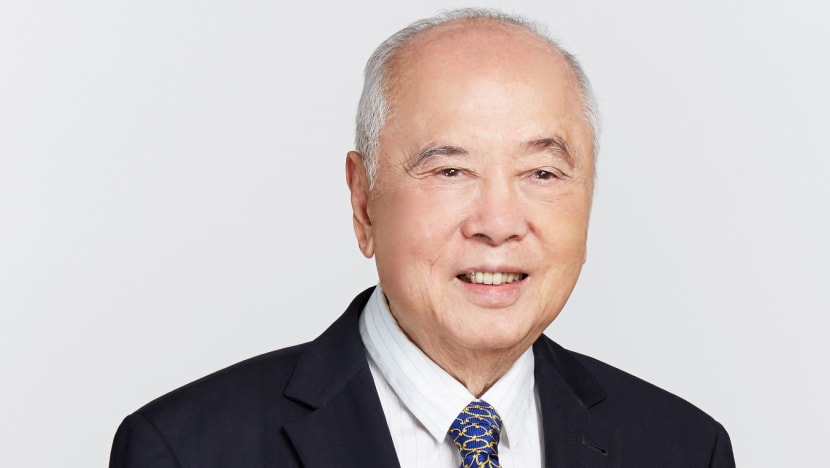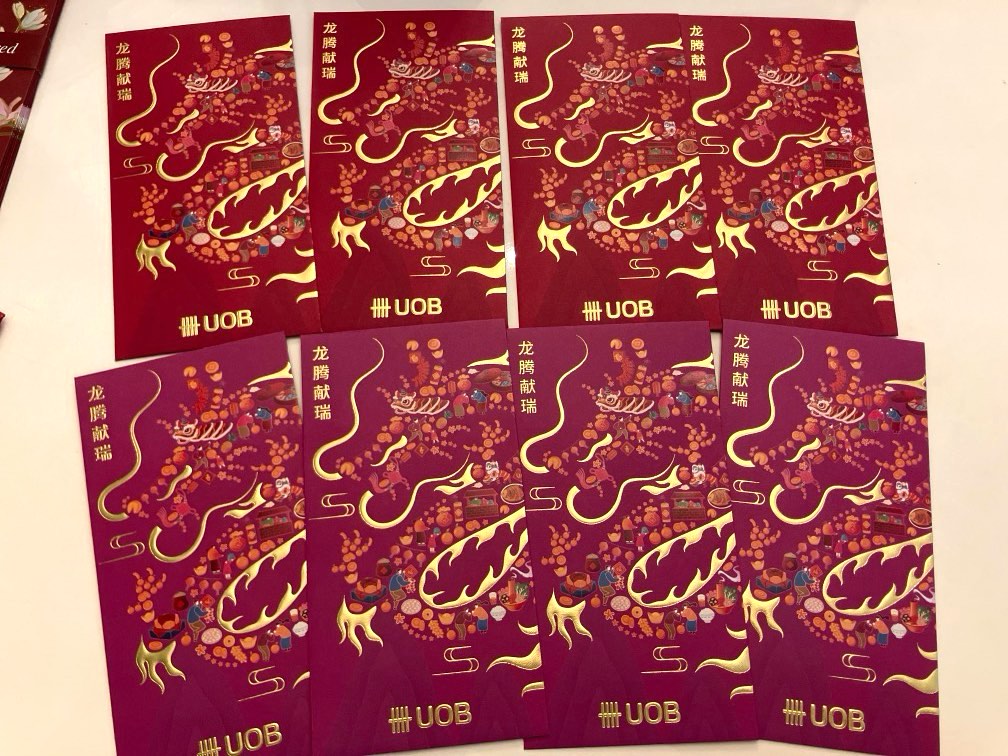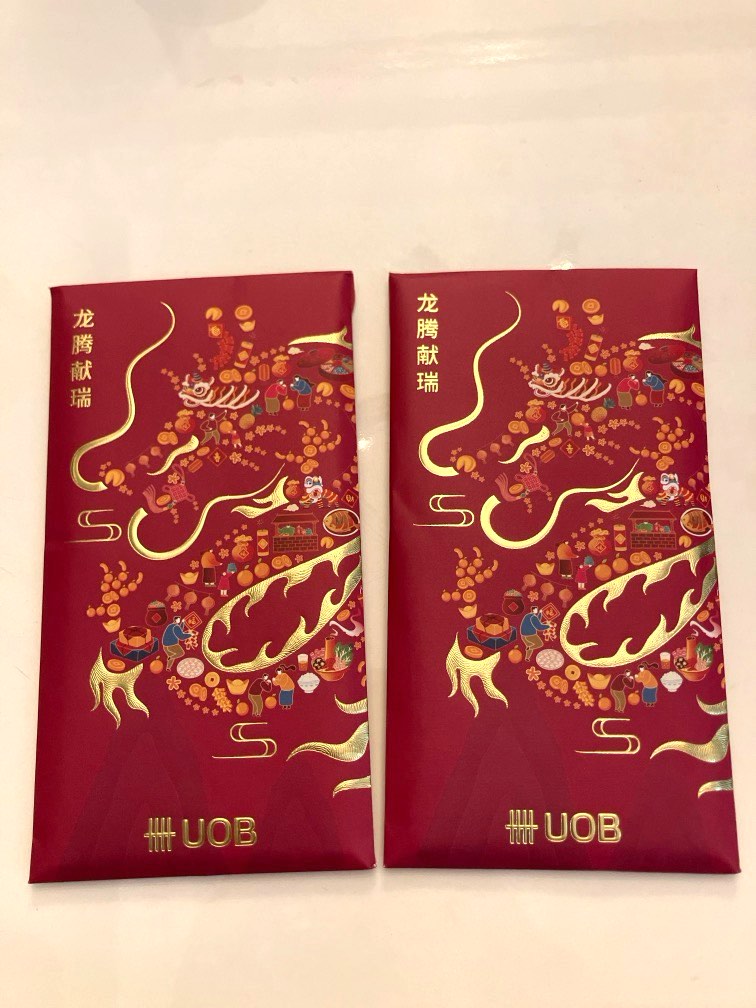You are using an out of date browser. It may not display this or other websites correctly.
You should upgrade or use an alternative browser.
You should upgrade or use an alternative browser.
Singapore bank founder Wee Choo Yew uplorry
- Thread starter Boonsiong
- Start date
- Joined
- Jan 22, 2014
- Messages
- 9,268
- Points
- 113
UOB’s Wee Cho Yaw dies aged 95
RIP , Chairman Emeritus Wee.

Last edited:
- Joined
- Sep 22, 2008
- Messages
- 83,098
- Points
- 113
You Owe Bank founder? So young?
- Joined
- Sep 28, 2011
- Messages
- 4,133
- Points
- 113
Death the leveller...
No matter how rich, how powerful you are, in the end you still lie in a coffin when you check out.
Moral of story: People won't remember or care how rich you are. They only remember what good you have done in your living years.
No matter how rich, how powerful you are, in the end you still lie in a coffin when you check out.
Moral of story: People won't remember or care how rich you are. They only remember what good you have done in your living years.

- Joined
- Sep 22, 2008
- Messages
- 83,098
- Points
- 113
Jiu hu banks, maybank, public bank and one more bank cannot recall, were all started by ex ocbc sinkie executives.Actually the founder and seed money is from his father but u grew the banks and survive brutal bank restructuring process imposed by PAP
- Joined
- Aug 20, 2022
- Messages
- 19,706
- Points
- 113
so all uob banks close whole of next week?
- Joined
- May 27, 2021
- Messages
- 3,991
- Points
- 113
Khoo teck puat maybe richer than him.
- Joined
- Aug 20, 2022
- Messages
- 19,706
- Points
- 113
my fd.in UOB will be affected or not ?Khoo teck puat maybe richer than him.
- Joined
- May 16, 2023
- Messages
- 39,070
- Points
- 113
RIP. CONDOLENCE to his familyUOB’s Wee Cho Yaw dies aged 95
- Joined
- May 16, 2023
- Messages
- 39,070
- Points
- 113
Yeah....khoo family has Standard Chartered Bank sharesKhoo teck puat maybe richer than him.
- Joined
- May 16, 2023
- Messages
- 39,070
- Points
- 113
They start 1930s from Sarawak, if not remembered wronglyActually the founder and seed money is from his father but u grew the banks and survive brutal bank restructuring process imposed by PAP
- Joined
- Aug 6, 2008
- Messages
- 16,405
- Points
- 113
If chinks don't cheat they will never get rich.Jiu hu banks, maybank, public bank and one more bank cannot recall, were all started by ex ocbc sinkie executives.
- Joined
- Jul 14, 2008
- Messages
- 18,437
- Points
- 113
How many lees are related? Will LHL attend the wake ?
CIMB.Jiu hu banks, maybank, public bank and one more bank cannot recall, were all started by ex ocbc sinkie executives.
- Joined
- Jul 18, 2014
- Messages
- 5,315
- Points
- 113
UOB’s Wee Cho Yaw dies aged 95
Billionaire so rich also useless, cannot attain immortality with all his wealth passed to his children who will fight and squander away as usual.
- Joined
- Aug 20, 2022
- Messages
- 19,706
- Points
- 113
Wee Cho Yaw, former UOB chairman and one of Singapore's richest men, dies aged 95
Banking tycoon Wee Cho Yaw helmed UOB Group for more than 60 years before he retired from the board in 2018.
03 Feb 2024 12:09PM (Updated: 03 Feb 2024 03:37PM)
SINGAPORE: Mr Wee Cho Yaw, the former chairman and CEO of Singapore bank UOB, has died at the age of 95.
Mr Wee is one of Southeast Asia's most successful businessmen, having helmed UOB Group for more than 60 years before he retired from the board in 2018.
He was also chairman of real estate developer UOL Group.
UOB announced his passing on Saturday (Feb 3), describing Mr Wee as a "visionary banker, celebrated businessman and community pillar" who was "pivotal to UOB’s development as a leading bank in Asia".
UOB is Singapore's third-largest bank by market cap. Mr Wee had stayed on as its Chairman Emeritus and Honorary Adviser after retiring from the board.
Born in Kinmen in 1930, Mr Wee moved to Singapore as a child amid the Sino-Japanese war.
At the age of 28, he became the youngest director on the board of United Chinese Bank which his father Wee Kheng Chiang co-founded in 1935.
It was later renamed United Overseas Bank (UOB).
Under Mr Wee's leadership, the bank grew from one branch to a regional bank in 19 countries and territories, UOB noted.
One of Singapore's wealthiest men, the banking veteran consistently appeared on Forbes' rich list.
In 2023, he was eighth on the Forbes list of Singapore's 50th richest people, with a net worth of US$7.1 billion. He was Singapore's richest man in 2011, with a fortune of US$4.2 billion.
WEE CHO YAW'S LEGACY
Mr Wee has five children. His eldest son, Wee Ee Cheong, is the current deputy chairman and CEO of UOB.“My father has left an indelible mark in Singapore and the region," said Mr Wee Ee Cheong.
"He has been a source of inspiration for me in all aspects of my life. Much will be said about his business acumen and dealmaking but it will be the values of honour, enterprise, unity and commitment that will be the legacy he leaves us at UOB.
"Whether it is thorough thinking for the long-term, the importance of deep relationships, doing the right thing or giving a helping hand to those in need, the influence of my father and his values will endure at UOB.”
UOB chairman Wong Kan Seng also paid tribute to the late banking tycoon, saying he is "without doubt" one of Singapore's most successful entrepreneurs.
"His towering presence can be seen across Singapore through the many industries, businesses, individuals and communities that UOB has supported over the years," Mr Wong said.
"He has also made many important contributions to the development of Singapore as a global financial centre.”
Beyond business, the late Mr Wee was passionate about education and giving back to the community.
He headed the Hokkien Huay Kuan - one of Singapore's largest clan associations - from 1972 to 2010. He was also the founding president of the Singapore Federation of Chinese Clan Associations (SFCCA) from 1985 to 2010, the umbrella group for local Chinese clan associations.
As then-president of the SFCCA, he was instrumental in the formation of the Chinese Development Assistance Council (CDAC), which was founded in 1992 to help less fortunate Chinese families and academically weaker students.
Prime Minister Lee Hsien Loong, in his speech to mark the CDAC's 20th anniversary, described Mr Wee as a "prime mover" behind the non-profit self-help group.
"He led the Fund Raising Committee and donated generously to the Endowment Fund, helping to raise more than S$10 million. He helped introduce many CDAC programmes, like the CDAC-SFCCA Hardship Assistance Fund, the Bursary Schemes and many others," Mr Lee said in 2012.
After Nanyang University was merged with the University of Singapore in 1980, Mr Wee was invited to become a council member of the newly formed National University of Singapore (NUS).
He later became pro-chancellor of the Nanyang Technological University (NTU) in 2004.
Both universities had conferred an honorary doctor of letters on Mr Wee for his contributions.
In 2015, UOB also set up the S$50 million Wee Cho Yaw Future Leaders Award scholarship programme to help provide financial assistance to students from disadvantaged backgrounds.
- Joined
- Aug 10, 2008
- Messages
- 107,506
- Points
- 113
How many lees are related? Will LHL attend the wake ?
I thought the Familee is affiliated to OCBC? That means UOB is a rival.

Similar threads
- Replies
- 1
- Views
- 319
- Replies
- 51
- Views
- 2K
- Replies
- 13
- Views
- 1K


